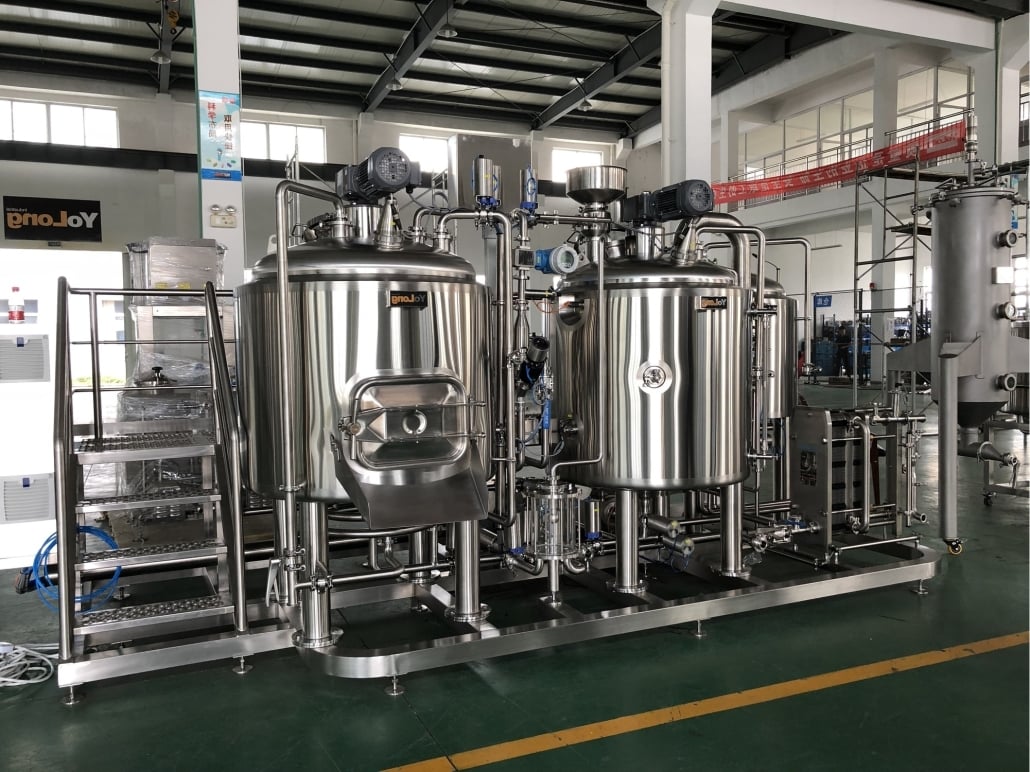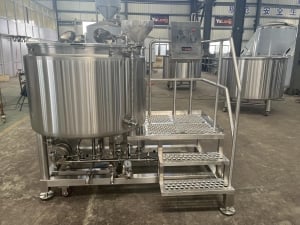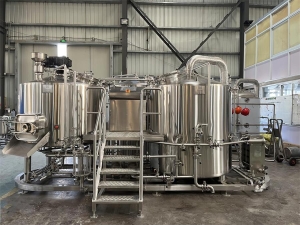Table of Contents
ToggleIntroduction
Commercial fermentation tanks play a vital role in various industries, facilitating the fermentation process of liquids or semi-solids to create a wide array of products. Whether you’re in the brewery, biotechnology, or food processing industry, having the right fermentation tank can significantly impact the quality and efficiency of your production process. In this article, we will explore the ins and outs of commercial fermentation tanks, the different types available, essential features to consider, their advantages, installation, and maintenance, as well as the latest trends and innovations in this field.
Understanding Fermentation Tanks
What are Fermentation Tanks?
Fermentation tanks are specialized vessels designed to support the biological fermentation process, which involves the conversion of sugars and other organic substances into alcohol, gases, or organic acids by microorganisms like yeast or bacteria. These tanks provide the controlled environment necessary for the fermentation process to occur efficiently and consistently.
Importance of Fermentation Tanks in Commercial Processes
Commercial fermentation tanks are essential for industries involved in the production of beverages, pharmaceuticals, biofuels, and various other products. They offer a controlled environment that allows businesses to maintain product quality, improve production efficiency, and ensure batch-to-batch consistency.
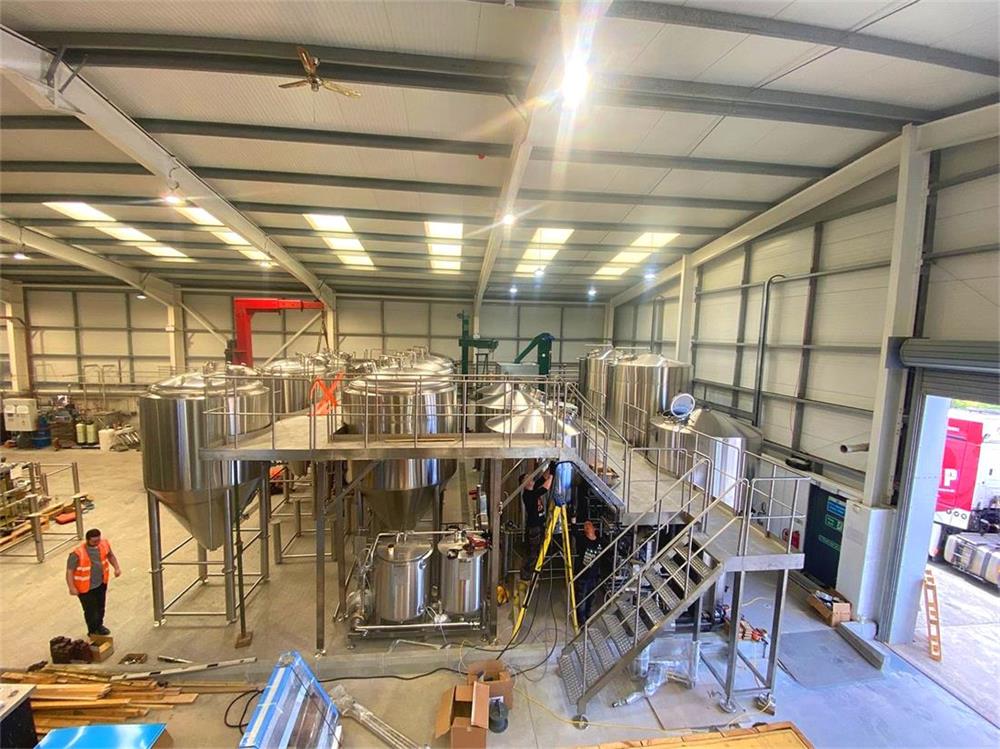
Types of Commercial Fermentation Tanks
There are various types of fermentation tanks available in the market, each offering distinct advantages for specific applications.
Stainless Steel Fermentation Tanks
Stainless steel fermentation tanks are the most popular choice for many industries due to their durability, corrosion resistance, and ease of cleaning. They are commonly used in breweries and wineries, providing a hygienic environment for the fermentation process.
Plastic Fermentation Tanks
Plastic fermentation tanks are lightweight and cost-effective options for smaller operations. While they may not have the same longevity as stainless steel tanks, they are suitable for certain applications where frequent replacement is not an issue.
Concrete Fermentation Tanks
Concrete fermentation tanks are often used in large-scale operations due to their high capacity. They offer good insulation and thermal mass, maintaining stable fermentation temperatures, which can be beneficial for specific products.
Key Features to Consider
When selecting a commercial fermentation tank for your business, certain key features are crucial to ensure optimal performance and efficiency.
Capacity and Size
The tank’s capacity should align with your production needs, ensuring it can accommodate the desired batch size while leaving room for expansion if necessary.
Cooling and Heating Systems
Maintaining consistent temperature levels is essential for a successful fermentation process. Invest in tanks equipped with efficient cooling and heating systems.
Cleaning and Maintenance
Easy cleaning and maintenance procedures are vital for preventing contamination and ensuring the tank’s longevity.
Accessibility and Design
Consider tanks with user-friendly designs that allow easy access for cleaning, loading, and unloading processes.
Customization Options
Depending on your specific requirements, look for manufacturers who offer customization options to tailor the tank to your needs.

Advantages of Commercial Fermentation Tanks
Investing in high-quality commercial fermentation tanks can yield numerous benefits for your business.
Consistent Product Quality
With precise control over fermentation conditions, these tanks ensure consistent product quality, which is vital for establishing a reputable brand and satisfying customer expectations.
Cost-Efficiency
Efficient fermentation tanks can lead to reduced production costs by optimizing the use of resources and minimizing wastage.
Time-Saving
Automated features in modern fermentation tanks streamline the fermentation process, saving valuable time and increasing overall productivity.
Better Control of the Fermentation Process
Having full control over critical factors like temperature, pressure, and agitation allows you to fine-tune the fermentation process, resulting in desired product attributes.
Selecting the Right Fermentation Tank for Your Business
Choosing the ideal fermentation tank requires a thoughtful approach considering your unique business needs and constraints.
Understanding Your Production Needs
Evaluate your production volume, the type of product you’re manufacturing, and any specific fermentation requirements.
Budget Considerations
While quality should be a priority, consider a tank that fits within your budget without compromising on essential features.
Quality and Durability
Invest in tanks made from high-quality materials that ensure longevity and prevent contamination risks.
Manufacturer Reputation
Research and choose reputable manufacturers known for delivering reliable and high-performance fermentation tanks.
Installing and Operating Fermentation Tanks
Proper installation and operation are crucial for maximizing the efficiency and safety of your fermentation tanks.
Proper Tank Installation
Follow manufacturer guidelines for tank installation, and ensure it is located in a suitable environment with proper ventilation and access to utilities.
Monitoring and Maintenance
Regularly monitor fermentation parameters and perform scheduled maintenance to prevent unexpected issues and ensure the tank’s longevity.
Safety Measures
Implement safety protocols to protect personnel and avoid accidents during tank operation and maintenance.
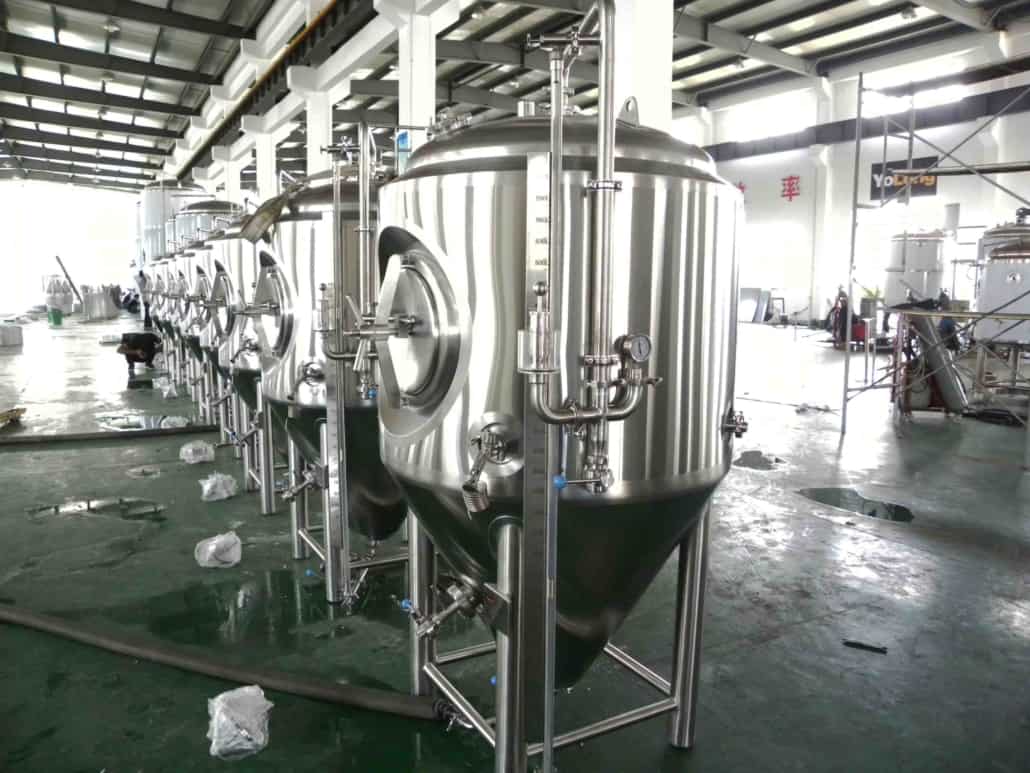
Cleaning and Sanitization
Proper cleaning and sanitization are vital to prevent contamination and maintain product quality.
Importance of Cleaning Fermentation Tanks
Understand the significance of thorough cleaning to remove residues and microorganisms that could compromise subsequent batches.
Cleaning Procedures
Follow recommended cleaning procedures, including using appropriate cleaning agents and sanitizers.
Sanitization Methods
Implement effective sanitization methods to ensure a sterile environment for each new fermentation cycle.
Troubleshooting Common Issues
Even with the best equipment, occasional issues may arise during fermentation.
Contamination Problems
Identify common sources of contamination and take preventive measures to avoid compromising product quality.
Temperature Fluctuations
Understand the impact of temperature fluctuations and how to address them promptly.
Pressure and Leakage Concerns
Monitor pressure levels and address any leaks promptly to prevent potential hazards.
Fermentation Process Stalling
Identify possible causes of fermentation stalling and troubleshoot the issue effectively.
Innovations and Trends in Commercial Fermentation Tanks
The field of fermentation tanks is constantly evolving, with innovative technologies and trends shaping the industry.
Automated Fermentation Systems
Automation is revolutionizing the fermentation process, allowing for precise control and real-time data monitoring. Automated fermentation systems can adjust parameters based on specific requirements, reducing human intervention and ensuring consistency.
IoT Integration for Data Monitoring
Internet of Things (IoT) technology is being integrated into fermentation tanks to provide valuable data insights. IoT-enabled tanks can monitor various parameters, such as temperature, pH levels, and fermentation progress, allowing businesses to make data-driven decisions and optimize their production processes.
Sustainability Initiatives
With increasing environmental awareness, sustainability is becoming a significant concern for businesses. Manufacturers are focusing on designing eco-friendly fermentation tanks, utilizing renewable materials and energy-efficient technologies to minimize the industry’s carbon footprint.
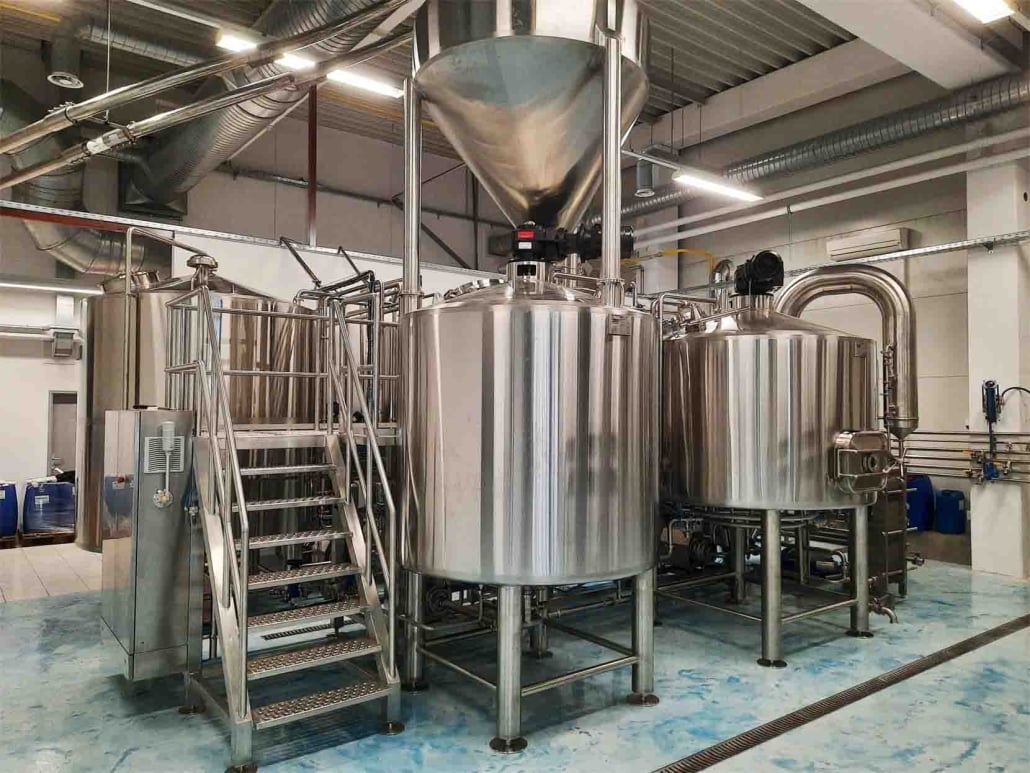
Case Studies: Success Stories with Fermentation Tanks
Learn from real-world examples of businesses that have leveraged fermentation tanks to achieve remarkable success.
Brewery Industry
Discover how breweries of all sizes have embraced advanced fermentation tanks to enhance their brewing processes, leading to better beer quality and increased production capacity.
Biotechnology Applications
Explore how fermentation tanks are integral to the biotechnology sector, enabling the production of pharmaceuticals, enzymes, and other valuable bioproducts.
Food Processing Companies
Uncover how food processing companies utilize fermentation tanks to produce a wide range of products, from dairy items to specialty foods, with improved efficiency and consistency.
Conclusion
Commercial fermentation tanks are indispensable assets for various industries, optimizing the fermentation process and ensuring high-quality end products. From stainless steel to plastic and concrete tanks, the market offers a wide range of options to suit diverse production needs. By selecting the right tank, adhering to proper installation and maintenance practices, and embracing technological innovations, businesses can elevate their production processes and achieve greater success in their respective industries.
FAQs
Q: Are stainless steel fermentation tanks worth the investment?
A: Yes, stainless steel tanks offer excellent durability, sanitation, and temperature control, making them a valuable long-term investment.
Q: Can plastic fermentation tanks be used for large-scale operations?
A: While plastic tanks are more common in smaller operations, they can be used for large-scale applications depending on specific requirements.
Q: How can I troubleshoot temperature fluctuations in my fermentation tank?
A: Ensure the cooling and heating systems are functioning correctly, and consider the external factors that might influence temperature changes.
Q: What are the benefits of IoT integration in fermentation tanks?
A: IoT integration allows real-time monitoring and data-driven decision-making, leading to optimized fermentation processes and resource utilization.
Q: How do I ensure proper sanitization of fermentation tanks?
A: Follow recommended cleaning procedures using appropriate cleaning agents and sanitizers to maintain a sterile environment for each batch.

